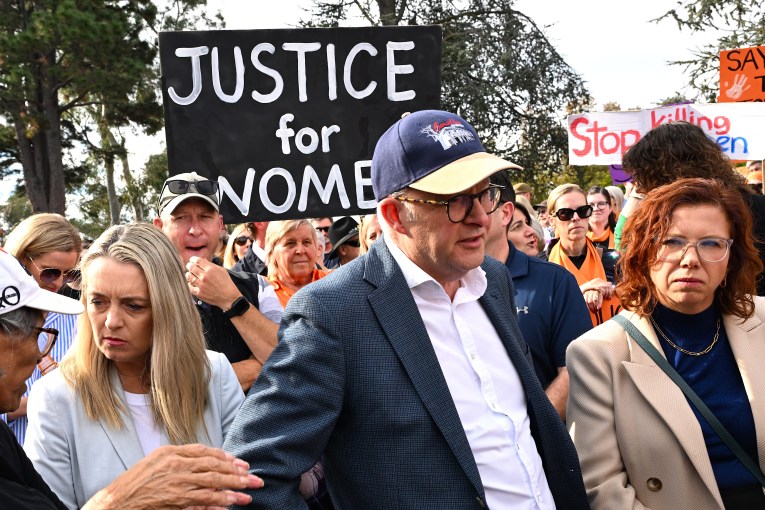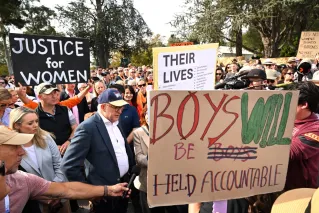It’s time to take hand-brake off our skills sector – we’re already decades behind
Rather than taking advantage of our education and training capabilities, Australia is sinking deeper into the skills quicksand. We’ve missed the boat, but that’s no reason not to keep kicking, writes Shane Rodgers.


Australia should be a global training and education provider, but is falling short on the practical side. (File image)
There is something genuinely tragic about the skills and labour situation that Australia finds itself in.
At a time when the economic outlook parameters are among the most challenging we have seen in a generation, we are dealing with an own goal that will take many years to fully address.
In short, we have failed to evolve our domestic education and training system to meet the changing needs of business and we have, in many respects, squandered the opportunity to use overseas skills to plug the gaps.
This is happening in a country with the potential to be a global education and training change leader, and one that could expect to have natural advantages in attracting and keeping the cream of global talent. Instead, just as the Australian economic engine should be powering out of the pandemic pandemonium, our business sector cannot find the people to take it forward.
The figures are sobering. The number of skills categories in which there are significant shortages has risen from 153 to 286 in just 12 months. Our health and education sectors, in particular, cannot find enough people. There are big government commitments to infrastructure but there are doubts we can find the thousands of workers needed to complete the work in the timelines presented.
A major industry skills survey, released by The Australian Industry Group’s Centre for Education and Training (CET) earlier this month, found 71 per cent of businesses were having difficulty acquiring enough technical and trades workers for their needs. This came as 69 per cent of businesses reported a growing need for skills in that area, 45 per cent needed more professionals, 43 per cent needed more managers and 37 per cent had a growing demand for labourers.
There are lots of conversations happening about how to fix the shortfall. Few of the options can be actioned quickly.
Ultimately we need to transform the system and modernise our approach to educating and training our own people based on the real and emerging workplace requirements. This needs to start with the basics. An estimated three million Australians lack the necessary foundation skills (language, literacy and numeracy) to be considered highly employable.
Further to this, we are still at the early stages of truly addressing the workplace needs around digital skills, which have become the new pillar of the foundation skills requirement. This is not about teaching school children to code. It is about the fundamental understanding of how digital now drives so many aspects of life and business.
As the CET report concludes, we need an education and training system that can rapidly and flexibly upskill workers as part of new cultural obsession with life-long learning. This will include more “short, stackable” training options and ease of movement between the vocational and higher education sectors.
Clearly, with immigration, we need to get past the age-old cultural cringe about “foreigners taking our jobs”.
At the moment, we should be grateful that overseas companies and institutions are training people when we cannot produce enough skills domestically. There needs to be a balance in this, but making people feel unwelcome is not part of that.
I heard Prime Minister Anthony Albanese last week point out that we educate smart young people from overseas in our universities and immerse them in our culture and way of life. Then we send them home to power somebody else’s economy and bring in another batch.
Wouldn’t it make more sense to make it easier for the people we train from anywhere in the world to stay and help us grow? We live in a global economy. Unless we stop pretending that overseas workers are trying to steal our lunch, we will lose out in the current intense global battle for talent.
The latest census reinforced that we are an internationally interweaved migrant country with a quarter of our people born overseas.
Certainly, we did ourselves no favours with the way we treated foreign workers and students who were trapped here during the pandemic.
Finally, we have a brand problem. At a time when so-called STEM jobs are in the ascendancy, we have managed to convince most of our smart young people that they need to aspire to white collar professional roles to be successful.
Yet so much of the real action and opportunity is in high-tech STEM roles that are powered by mind-blowing levels of technology, including artificial intelligence.
In countries like Germany and Switzerland, there is pride in being part of the renowned industrial and technology landscape. There are also very strong links between industry and education, creating a potent synergy that drives their economic machine and creates well paid, highly skilled jobs.
In Australia, vocations such as surveying, and standards and regulations have a rapidly ageing workforce despite being interesting and rewarding careers. Lots of companies are lining up now to take on apprentices. But finding quality candidates interested in this type of career, particularly in the manufacturing industry, is not easy.
On the upside, skills and labour shortages are a good problem to have because they are a hallmark of an economy full of energy. Ultimately we have to accept the situation and work at addressing it as quickly as possible.
A better engineered skills economy could be powering us through the turbulence of high inflation, weakening GDP outlooks and rising interest rates. Instead, we are running on one engine into the storm.
We really can’t let this happen again.
Shane Rodgers is the Brisbane-based national Chief Operating Officer of The Australian Industry Group, a peak employer organisation representing tens of thousands of members. He has a particular interest in social change and the secret languages of the workplace.












